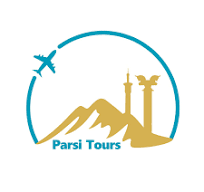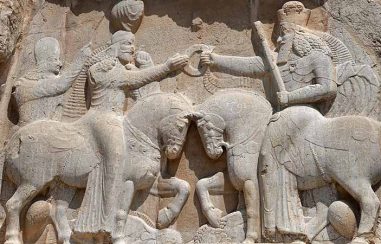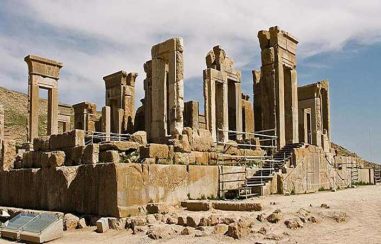Traveling to Iran is an exciting adventure, and immersing yourself in the local culture is one of the most rewarding aspects of the journey. One way to connect with the people of Iran and enhance your travel experience is by learning some common Persian phrases. Using essential Persian words in your conversations is a surefire way to win the hearts of Iranians and create genuine connections. In this article in Parsi Tours Iran travel agency, we’ll explore the top 10 must-know common Persian phrases that enable you to connect with the warm-hearted people of Iran and make a lasting impression.
The Elegance of the Persian Language
Persian, also known as Farsi, is more than just a means of communication; it holds immense importance as a window into the rich Iranian history and culture. Its roots stretch back thousands of years; Persian has been a language of poetry, literature, and philosophy. Persian poetry, in particular, is renowned worldwide, with luminaries like Rumi and Hafez leaving an indelible mark on the literary world.
Persian has evolved over the centuries, absorbing influences from Arabic, Turkish, and other languages while retaining its unique identity. This linguistic diversity reflects the dynamic history of the regions where Persian has been spoken, from Iran to parts of Central Asia and Afghanistan. Also, Its unique script, a blend of elegance and artistry, has enchanted scholars and travelers alike. This rich linguistic heritage is an integral part of the cultural identity of Iran..
Why Learn common Persian phrases for Travel?
For avid travelers, the ability to communicate in the local language can transform a journey. Imagine strolling through the bustling bazaars of Tehran, sipping fragrant tea in a traditional Iranian teahouse, or conversing with locals in the historic city of Isfahan. Learning common Persian phrases can turn these experiences into memorable adventures, enabling you to interact better with locals. It’s not just about breaking language barriers; it’s about building bridges of connection and cultural immersion.
When you speak even a few words in Persian, you immediately bridge the gap between being a tourist and becoming a welcomed guest. It demonstrates a genuine interest in Iranian culture and creates a sense of camaraderie. When you utter “Salaam” to greet someone or say “Mamnoon” to express gratitude, you’re not just using words; you’re extending a hand of respect and appreciation. Therefore, Learning common Persian phrases is like your passport to a more enriching and unforgettable travel experience in Iran.
Essential Everyday Common Persian phrases
Mastering a few fundamental Common Persian phrases can enhance your daily interactions and make your travels in Iran more enjoyable. Here are some essential terms that will serve you well in everyday life:
Hello – Salaam
Let’s kick things off with a warm greeting! “Salaam” is the Persian way to say hello. Although “Salaam” is an Arabic-rooted word that means “peace,” it’s also used for greeting in Iran; it’s a versatile and one of the most common Persian phrases suitable for formal and informal situations.

Common Persian phrases: Hello – Salaam
Use it with a smile, and you’ll instantly connect with native speakers. Whether you’re meeting a local vendor, a fellow traveler, or a new friend, starting with “Salaam” sets a friendly tone for your conversation.
Thank You – Mamnoon
Gratitude is a universal language, and “Mamnoon” or ” Merci” is how you express it in Persian. It may seem like a simple phrase, but in Persian culture, expressing gratitude is a significant part of daily life. Whether someone offers you a kind gesture or a delicious meal, saying “Mamnoon” will show your appreciation.
Also, if someone is very grateful, they say, “Khaili Mamnoon.” The word “Khaili,” which translates to “a lot,” is commonly used in combination with thanks. The sound “kh” is found in many Persian words; you will hear it often in Iranian conversations. It’s similar to the sound “ch” in the German word “Bach”.
Another term you may hear as a synonym for thank you is the Arabic word “Tashakkor,” or the Persian word ” Sepaas,” also used for showing gratitude on different occasions. There are many phrases to say thank you, but “Mamnoon” and ” Merci” are the most Common Persian phrases and the easiest ones to remember.
Yes / NO- Baleh / Na
“Baleh” is the formal Persian word for “yes.” It serves a fundamental role in affirming statements, questions, or requests. In informal conversations, you can say “Aareh,” which is the casual way to say “yes” in Persian. Providing affirmative responses with “Baleh” helps keep the dialogue flowing smoothly and indicates agreement or approval. It’s a gesture that you are receptive and willing to engage positively in the conversation.
“Na” is the Persian word for “no.” It is employed when you need to negate a statement, refuse an offer, or express disagreement. Much like “Baleh,” “Na” is a tool for polite communication. It allows you to decline something or disagree without being argumentative or impolite. An even more courteous expression is “Na, Mamnoon,” where “Mamnoon” adds a touch of gratitude to the refusal, enhancing the politeness of the interaction.
Excuse Me – Bebakhshid
“Bebakhshid” (be-bakh-sheed) translates to “Excuse me” in English, and it is one of the versatile common Persian phrases that is employed in various situations. “Bebakhshid” is often used to get someone’s attention in crowded places or when trying to initiate a conversation with a stranger.
Iranians use “Bebakhshid” also to apologize or pardon themselves when they inadvertently inconvenience or bump into someone. When moving through a crowded area, people may use “Bebakhshid” to request that others make space or step aside.
Another usage of “Bebakhshid” is in conversations. In a conversation, it can be used to interject politely, ask a question, or seek clarification. It can also be employed to request assistance or directions from someone; for instance, you can say, “Bebakhshid, could you tell me where the nearest metro station is?”
Please – Lotfan
The word “Lotfan” in Persian, is akin to “please” in English, and it is one of the common Persian phrases employed in various contexts to add politeness and courtesy. You can use “Lotfan” when asking for a favor, requesting, or seeking assistance politely. In everyday interactions, you’ll encounter “Lotfan” in various situations.
For instance, you might say, “Lotfan, pass me the salt,” during a meal with friends. Use it when ordering food at a restaurant; you can say, ” Ghormeh sabzi, lotfan” (One Ghormeh sabzi, please). Similarly, when navigating stores or seeking assistance from attendants while inquiring about products, including “Lotfan” in your request consistently elevates your interactions.
Here you go – Befarmaeed
“Befarmaeed” (be-far-maa-eed) is one of the common Persian phrases that hold significant prominence. It is frequently used in Persian taarof-related situations and translates to “You’re welcome” or “Here you go.”When visiting Iran, it is polite to incorporate this phrase when engaging in transactions or offering refreshments to others.

Common Persian phrases: Here you go – Befarmaeed
Moreover, you’ll frequently hear this term from others around you. You can expect to hear it from staff in various scenarios, such as dining in restaurants or enjoying coffee at cafes, typically when your order is ready. Also, while receiving directions, being offered an item, or being granted permission to carry out a task.
How are you? – Chetori?
In Persian, “Chetori?” is one of the common Persian phrases used to ask someone how they are feeling or their current state. It’s akin to the English greeting “How are you?” and is often used in everyday conversations in an informal way. “Chetori?” is a friendly and casual way to show interest in someone’s well-being.
If you want to sound a bit formal, you can start the conversation with this phrase: “Salaam, Chetorid?”. It is important to remember that “Chetori?” is a casual greeting among peers and is only suitable for social events, gatherings, or informal situations. The typical answer to “Chetori?” is “Khubam,” which means “I’m fine” in English.
Goodbye- Khodaa Haafez
“Khodaa Haafez” is the Persian equivalent of “Goodbye” in English. Saying goodbye can be bittersweet, but “Khodaa Haafez” allows you to part ways with warmth and respect. It’s a fitting farewell for your Iranian encounters. It expresses good wishes and is appropriate in formal and informal settings.
Among common Persian phrases, “Khodaa Haafez” is frequently used to bid farewell. In a more informal context, it’s often pronounced as “Khodafez.” However, for a casual and friendly goodbye, friends commonly use the phrase “Felan.”
Bon appétit! – Nooshe jaan!
The Persian phrase “Nooshe jaan!” is equivalent to “Bon Appétit!” in French or English. It’s a warm wish for a delightful and tasty meal. Typically, “Nooshe jaan!” is offered at the beginning and end of a meal, especially when dining at a Persian restaurant or during gatherings where the host extends this gracious phrase before guests dig in.

Common Persian phrases: Bon appétit! – Nooshe jaan!
Overall, “Nooshe jaan!” is one of the charming common Persian phrases aimed at conveying good wishes and elevating the culinary experience. While touring as a visitor, there’s no obligation to use it, but it’s a delightful phrase worth remembering and appreciated by all.
How Much is it? – Een Chandeh?
If you find yourself in a situation where you need to inquire about the price of something, the phrase “Een Chandeh?” can come in handy. This phrase translates to “How much is it?” in English and is particularly useful when shopping.
While shopping for souvenirs in a bustling market, browsing items in a store, or simply seeking information about the cost of a particular item. This simple yet effective phrase lets you obtain accurate pricing information and make informed purchasing decisions.
Conclusion
In conclusion, learning common Persian phrases is not just about mastering words; it’s about enriching your travel experiences and building meaningful connections. In exploring common Persian phrases, we’ve uncovered a collection of expressions that play a vital role in everyday conversations, cultural interactions, and social etiquette. From greetings to polite requests and farewells, these phrases serve as cultural bridges, enabling you to navigate Persian-speaking communities and enrich your global experiences gracefully.



